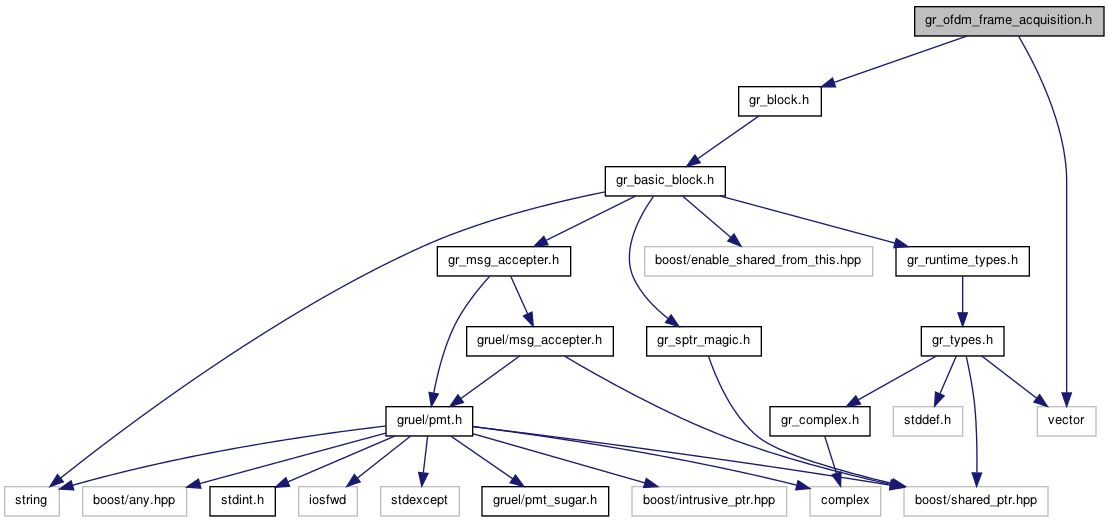Include dependency graph for gr_ofdm_frame_acquisition.h:

Go to the source code of this file.
Classes | |
| class | gr_ofdm_frame_acquisition |
| take a vector of complex constellation points in from an FFT and performs a correlation and equalization.This block takes the output of an FFT of a received OFDM symbol and finds the start of a frame based on two known symbols. It also looks at the surrounding bins in the FFT output for the correlation in case there is a large frequency shift in the data. This block assumes that the fine frequency shift has already been corrected and that the samples fall in the middle of one FFT bin. More... | |
Functions | |
| gr_ofdm_frame_acquisition_sptr | gr_make_ofdm_frame_acquisition (unsigned int occupied_carriers, unsigned int fft_length, unsigned int cplen, const std::vector< gr_complex > &known_symbol, unsigned int max_fft_shift_len=10) |
Function Documentation
| gr_ofdm_frame_acquisition_sptr gr_make_ofdm_frame_acquisition | ( | unsigned int | occupied_carriers, |
| unsigned int | fft_length, | ||
| unsigned int | cplen, | ||
| const std::vector< gr_complex > & | known_symbol, | ||
| unsigned int | max_fft_shift_len = 10 |
||
| ) |
- Parameters:
-
occupied_carriers The number of subcarriers with data in the received symbol fft_length The size of the FFT vector (occupied_carriers + unused carriers) cplen The length of the cycle prefix known_symbol A vector of complex numbers representing a known symbol at the start of a frame (usually a BPSK PN sequence) max_fft_shift_len Set's the maximum distance you can look between bins for correlation
